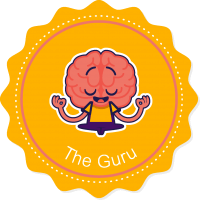Motivation is the driving force behind student engagement and achievement. As educators, understanding the psychology of motivation equips us with powerful tools to inspire our students and foster a positive learning environment.
What Motivates Students?
Motivation can be intrinsic, stemming from internal desires and interests, or extrinsic, driven by external rewards or pressures. Both forms play a crucial role in student engagement.
Intrinsic motivation is nurtured when students find personal relevance and meaning in their learning. This can be cultivated through:
Choice: Providing students with opportunities to make decisions about their learning journey fosters a sense of autonomy and ownership.
Interest-Based Learning: Tailoring instruction to align with students’ interests taps into their natural curiosity and passion.
Goal Setting: Encouraging students to set and work towards achievable goals empowers them to take control of their learning.
Extrinsic motivation, on the other hand, involves external incentives such as grades, praise, or rewards. While these can be effective in the short term, they may not sustain long-term engagement unless complemented by intrinsic motivators.
Strategies for Inspiring Students
Create a Positive Learning Environment: Establishing a classroom culture that celebrates effort, embraces mistakes as learning opportunities, and fosters a sense of belonging can enhance students’ motivation to participate and excel.
Set Clear Expectations: Providing clear instructions, outlining learning objectives, and establishing transparent assessment criteria helps students understand what is expected of them, reducing ambiguity and anxiety.
Offer Meaningful Feedback: Timely and constructive feedback provides students with valuable insights into their progress and areas for improvement. It reinforces their sense of competence and mastery, fueling intrinsic motivation.
Foster Growth Mindset: Encouraging students to adopt a growth mindset cultivates resilience and perseverance in the face of challenges. Emphasize the importance of effort, strategy, and perseverance in achieving success rather than innate ability.
Promote Student Agency: Empowering students to take ownership of their learning journey by involving them in decision-making processes, encouraging self-reflection, and offering opportunities for self-directed learning fosters a sense of responsibility and motivation.
Celebrate Progress and Success: Recognizing and celebrating students’ achievements, both big and small, reinforces positive behavior and motivates continued effort.




Really it is powerful tools to inspire our students and foster a positive learning environment.